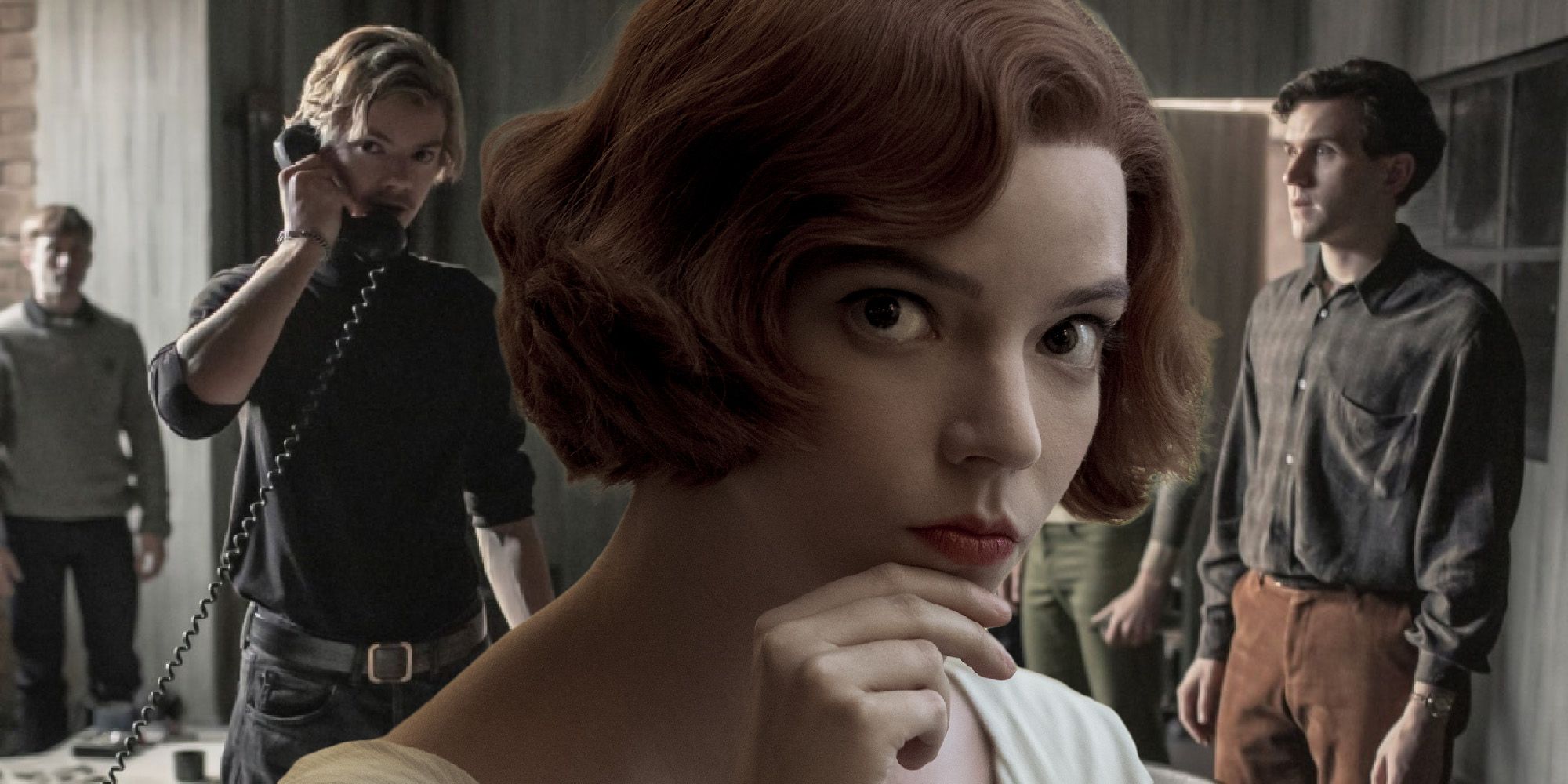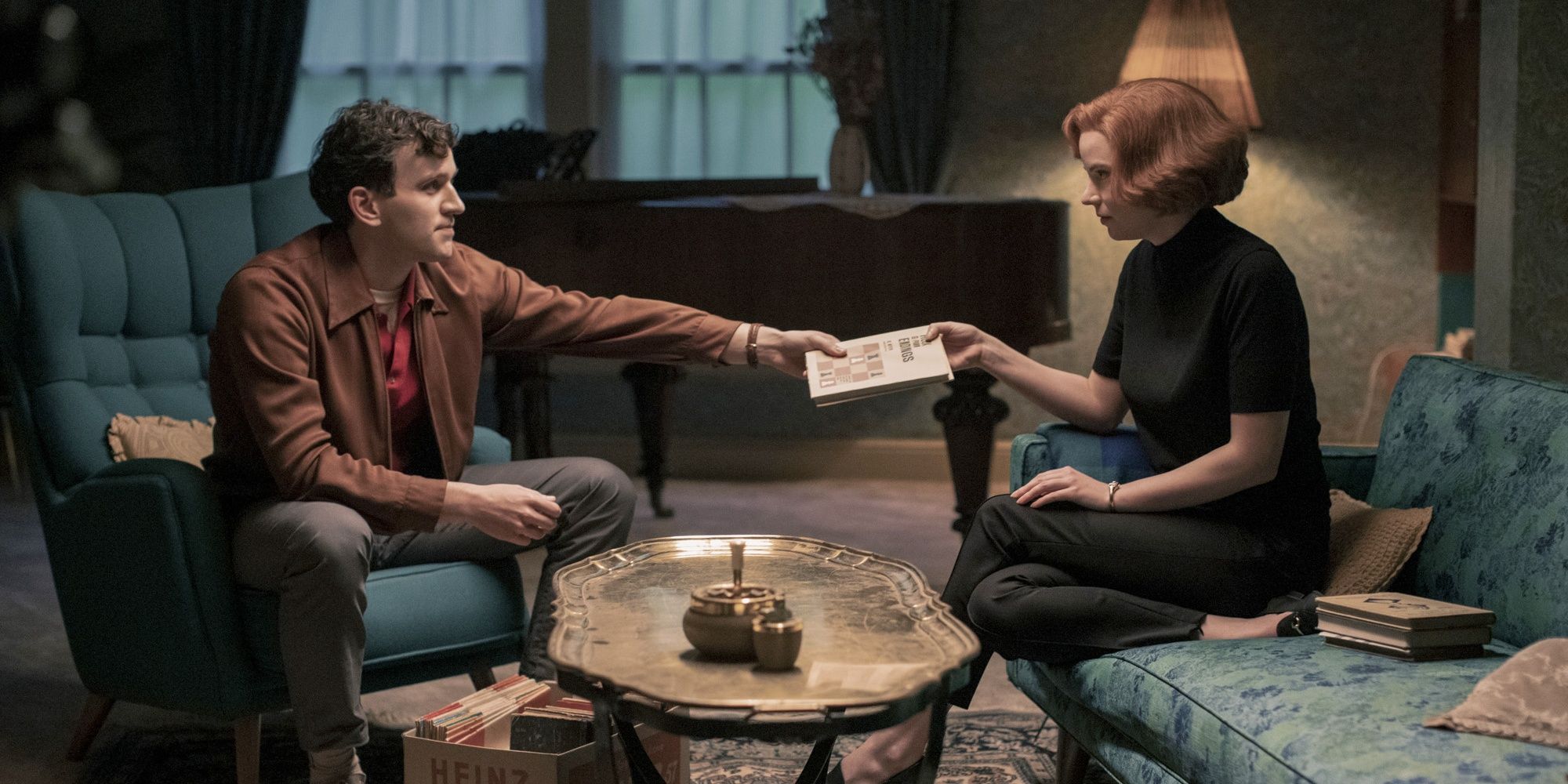WARNING: Spoilers for The Queen's Gambit.
The Queen's Gambit challenges the Manic Pixie Dream Girl (MPDG) movie trope with its narrative structure and climactic messaging. Writer-director Scott Frank begins the series by framing the central protagonist, Beth Harmon, as a social outlier, albeit one who understands and accepts her reality. As an adult, the chess prodigy draws the attention of young men who lust over what she represents rather than appreciating her evolution as a woman. The Queen's Gambit presents the audience with a Manic Pixie Dream Girl chess piece, and then shatters it against the wall.
In movie culture, the Manic Pixie Dream Girl trope is often reductively used to easily categorize quirky female characters. Film critic Nathan Rabin initially coined the phrase to describe Kirsten Dunst's Elizabethtown character Claire Colburn, and later apologized for "creating this unstoppable monster" approximately a decade later [via Salon]. By definition, Beth Harmon (Anya Taylor-Joy) of The Queen's Gambit isn't a traditional Manic Pixie Dream Girl because she's the primary protagonist who controls the narrative, as opposed to being a thinly-written female character who merely exists to educate or inspire a male protagonist. To many, the Manic Pixie Dream Girl trope applies to charismatic and independent female characters who project a specific image to admirers. In that sense, Beth Harmon does indeed gain the attention of Harry Beltik (Harry Melling) and Benny Watts (Thomas Brodie-Sangster) in The Queen's Gambit because she's an atypical (and appealing) female chess prodigy.
Harry makes his move in The Queen's Gambit episode 5, "Fork." Years after competing against Beth in the Kentucky State Tournament, he calls to offer support after her loss to the Russian champion Vasily Borgov (Marcin Dorociński). Harry initially reaches out with chess advice and connects with Beth on a personal level, but he's clearly attracted to her beauty and intellect, evidenced by his puppy-dog stares. The Queen's Gambit eventually subverts expectations, at least for Harry, through an early '60s domestic setting. In this case, Beth has money and fame, along with her own home. She doesn't need to answer to anyone but herself. So, rather than trying to romance Beth, Harry offers what he can: advice and logic. After a sexual relationship begins, Harry eventually walks away upon discovering that Beth is indeed a complicated woman. He's fascinated by the Beth Harmon persona but feels uncomfortable with anything that doesn't align with his idealized version of her.
In contrast, Benny is more accepting of Beth's reality. He understands the stress of being a chess prodigy, and he genuinely wants Beth to achieve her potential. In New York, Beth sobers up at Benny's modest underground apartment, and they eventually start a sexual relationship. However, Beth quickly realizes that she's been objectified by Benny in The Queen's Gambit, if only inadvertently, almost like she's a chess trophy that makes him feel better about his own career. After having sex, Benny shows little emotional intelligence by immediately talking about chess rather than comforting and/or acknowledging Beth as a woman. Later, when Beth needs help getting to Russia, Benny once again show little emotional intelligence and berates Beth for not wanting to live with him in New York City — in his slummy apartment where she slept on a blowup mattress (wisely, she chooses to live in the house she owns). "Maybe is a loser's word," he says, "don't call me anymore."
Appropriately titled "End Game," The Queen's Gambit series finale shows that Beth won't be reduced to simple categorizations. She reaches the pinnacle of her career in Moscow by defeating her #1 opponent, Borgov, which is a statement in itself. Beth then exits her limousine to enjoy a walk in the park, and to connect with fellow chess players. In order to fully appreciate unconditional love, Beth now understands that she must prioritize self-care, first and foremost. She's not Harry's ideal American housewife, nor is she Benny's big city bohemian trophy. In The Queen's Gambit, Beth Harmon can exist outside Manic Pixie Dream Girl cliches because she's a fully-developed character who trusts her instincts, both personally and professionally.


